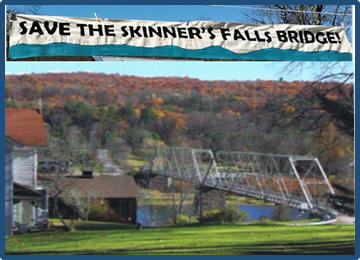Independent Study Finds Significant Fault Line Methane Leaks Near PA Natural Gas Operations
July 8, 2012In PA, 3,355 Marcellus Violations between 2008 and 2011
July 10, 2012
The American Water Works Association (AWWA), the Association of Metropolitan Water Agencies (AMWA), and the National Association of Water Companies (NAWC) support legislative and regulatory actions to ensure that oil and gas development receives appropriate oversight. Specifically:
- EPA should use existing Safe Drinking Water Act (SDWA) authority to regulate oil and gas well construction and operation, including hydraulic fracturing practices, through the Underground Injection Control (UIC) Program.
- Congress should remove statutory barriers impeding federal regulation and oversight of oil and gas wells under the SDWA UIC program, particularly wells developed using hydraulic fracturing.
- EPA should also use existing authority under the Clean Water Act (CWA) to regulate discharges to surface water bodies from oil and gas operations, including the expedited preparation of effluent guidelines under the CWA’s National Pollution Discharge Elimination System (NPDES) program.
- In addition, Congress should provide adequate resources to EPA and partner federal agencies necessary to support timely research and regulatory oversight under the SDWA, CWA and other appropriate statutes.
AWWA, AMWA, and NAWC support the following principals regarding oil and gas activities:
- Wells, particularly those developed using hydraulic fracturing, must be appropriately sited, designed, operated, and closed using sound engineering technologies and practices.
- The impact of site activities on ground water and surface water potentially affecting quality or availability of water supplies should be actively monitored during operations and after the facility is closed.
- Oil and gas development activities must be protective of critical water supply infrastructure used for collection, conveyance, treatment, and distribution of drinking water sources and supplies.
- Oil and gas developers must have a financially sound strategy to pay for
management of hazards, such as contamination of water supplies that may occur as a result of site activities and be held responsible for associated hazards arising after extraction activity has ended. - Federal programs with relevant regulatory oversight bearing on health, safety, and environmental impacts associated with oil and gas development should clearly describe relevant best-practices to the industry and interested public (e.g., surface water runoff, pipeline safety, hazardous material handling, etc.).
- Additional federal action should ensure complete and timely disclosure of hydraulic fracturing activities to affected local governments. Notification is critical to addressing community impacts, including mitigating potential implications for drinking water supplies. Drinking water systems need information about the chemicals to be injected in conjunction with hydraulic fracturing activities, as well as the amount and sources of water to be used.
AWWA, AMWA, and NAWC support sound federal energy policies. These policies need not and must not harm our nation’s drinking water supplies. Oil and gas development (including development utilizing hydraulic fracturing) must provide appropriate protection of our nation’s ground water and surface water resources. The federal government must assist states and local governments ensure necessary public health and environmental protections are in place.



